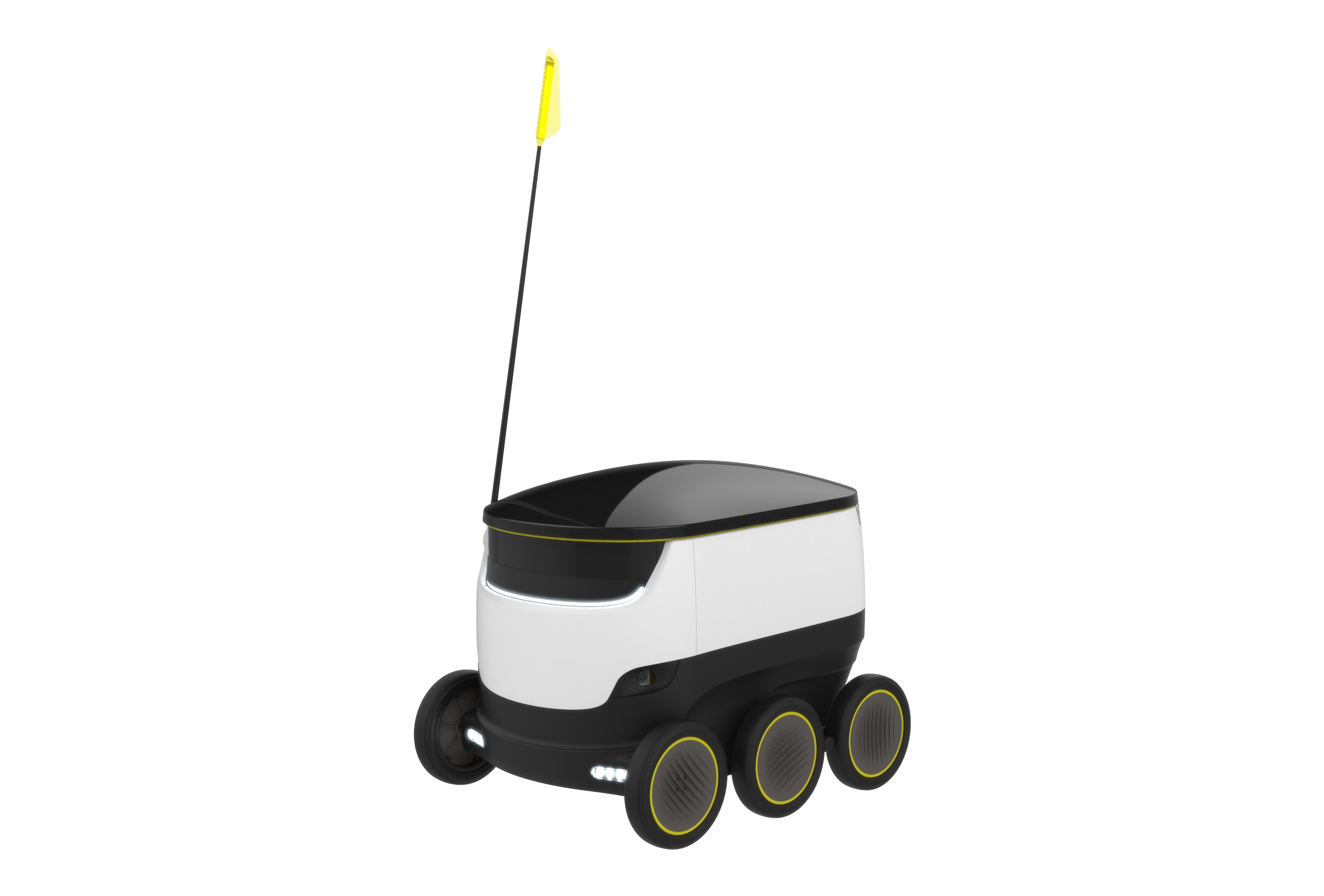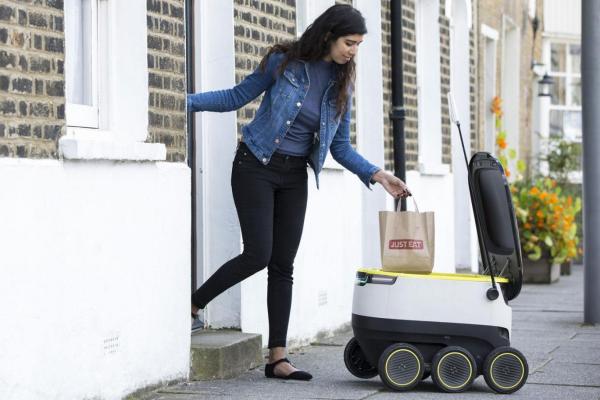Airborne drone delivery is still more PR than public reality, but wheeled, self-driving delivery bots could be trundling down a sidewalk near you sooner than you think. London-based Starship Technologies, which counts Skype co-founders Ahti Heinla and Janus Friis among its founding team, is launching a broad testing phase of its autonomous delivery bots in parts of the UK, Germany and Switzerland starting this month.
Starship’s relatively small wheeled delivery bots have been in testing in select cities in 12 countries during the last nine months already, but this expansion of the trial will mark the first time the robots are being tested in actual delivery scenarios. That means they’re bringing on partners to provide the delivery inventory, including food delivery players Just Eat, and London-based Pronto.co.uk. German retailer Metro Group and parcel delivery company Hermes will also take part in the pilot, which will span five cities providing deliveries to actual paying customers.
London, Düsseldorf, and Bern can expect to see the robots in action first, with other cities in Europe and America to follow as the trial progresses. Starship Technologies’ Marketing and Communications Manager Henry Harris-Burland tells TechCrunch that this phase of testing should span between six and eight months, with a full commercial deployment currently targeting 2017, pending progress of the trials.
 As for the goal of the tests, Harris-Burland says they are many and varied, including “public acceptance, testing the reliability of the technology, testing human reactions, and testing transportation of hot food, cold food, parcels and groceries.”
As for the goal of the tests, Harris-Burland says they are many and varied, including “public acceptance, testing the reliability of the technology, testing human reactions, and testing transportation of hot food, cold food, parcels and groceries.”
I asked Harris-Burland whether the robots might prove a target of abuse (there’s precedent), or cause for anxiety in unprepared human observers.
“Abuse is rare and in over 5,000 miles of testing, we haven’t had an issue of abuse yet,” he explained via email. “However with more and more robots out on the streets, it is a matter of time before something happens and we’re ready for this. It is another reason why we’re testing the robots in real world environments. The robot obviously has 9 cameras, tracking to the nearest inch and alarms to prevent any sort of incident. The robot has come into contact with 400,000 people and there hasn’t been an incident yet.”
As to how Starship Technologies plans to educate the average person about what this space-age robot is doing in its city and for what reason, Harris-Burland explained that they’ll be socialized during testing with human companions.
“The robots are accompanied by humans in the initial pilot phase of our joint testing program,” he added. “This is for a variety of reasons, but also to monitor public acceptance and engagement. What will happen when a robot turns up at a customers door? How will they react? The human there will be able to answer some questions that the consumer may have. Also they will be told they’re part of the world’s first robotic delivery trials which is pretty cool!”
Starship Technologies has clearly given a lot of thought to the part of robot tech that too often gets ignored: how to integrate its use into human society. Hopefully that means these bots will continue to make their deliveries efficiently and effectively without fear of unwanted human intervention.
